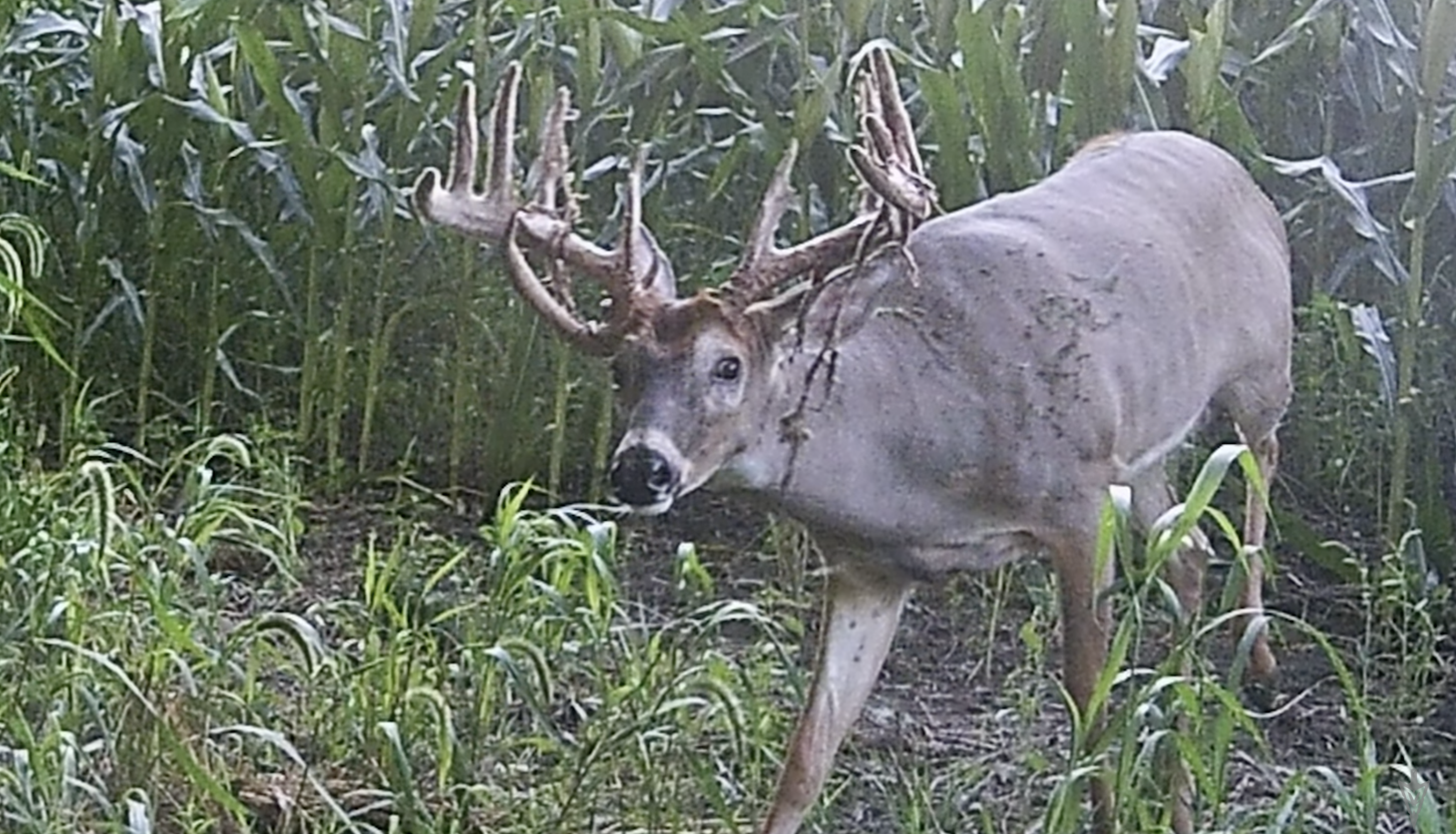(CNN) An Omicron-like variant of the virus that causes Covid-19 — one that appears to be highly divergent from circulating strains and sticks out on a long branch of the virus’ family tree — has been discovered in a population of white-tailed deer in Ontario, Canada, according to a new study.
The same strain has also been found in a person from the same area who had confirmed contact with deer.
The researchers who first characterized what they are calling the Ontario WTD clade say it’s difficult to determine how this lineage evolved because it seems to have gone along unnoticed and unsampled in the background of the pandemic for almost a year.
[In biology, a clade is a group of organisms believed to have evolved from a common ancestor.]
The new branch of the SARS-CoV-2 family tree has about 79 gene changes that set it apart from the original strain of the virus that was first identified in Wuhan, China.
Researchers speculate that SARS-CoV-2 spilled over from humans to deer, evolved 79 times, and then jumped back to at least one human.
About half of those changes — 37 — have been seen in animals, but 23 of them have never before been identified in deer.
J. Scott Weese, a professor at the University of Guelph in Canada who specializes in the study of infections that jump between animals and people, said:
“It’s actually a pretty significant study, I think, because we’re seeing potential evolution of the virus in an animal reservoir.”
Weese says that before, we might see the SARS-CoV-2 virus pass between people and animals but then stop. There wasn’t an indication that it was persisting and changing in an animal population after these spillover or spillback events. The closest viral relatives of the new clade, however, date back 10 to 12 months to humans and mink in Michigan, just over the border from Ontario.
“It went somewhere and changed over the course of months to a year, and it looks like most likely that was within an animal. We just don’t know what species or where,” says Weese … read more.
Hunters urged to take precaution when handling wild deer this season
By Justin Pryor Raleigh, Nov. 30, 2021
RALEIGH, N.C. — Wild deer could be infected with the same virus that causes COVID-19 in humans, according to recent studies conducted in Iowa and Ohio. Because of this, wildlife officials say hunters should take precautions when handling deer this season.
The studies confirmed infection of SARS-CoV-2 in wild deer found in those states, according to a release from the N.C. Wildlife Resource Commission. Officials say studies have not been conducted in North Carolina, but “there is no reason to expect that the situation would be different in our state.”
“There is a lot we still don’t know about SARS-CoV-2 infections in deer, but we do know deer can be infected, and that is a good reason for hunters to continue using safe handling practices with their harvested deer,” said Moriah Boggess, deer biologist with the Wildlife Commission.
The Centers for Disease Control and Prevention says there is no evidence showing that animals play a significant role in spreading the virus at this time, and there have been no reports of transmission from an infected deer to a human. However, hunters are still advised to practice basic safe handling precautions when field dressing or harvesting any wild deer.
Precautions include:
- Do not eat any deer that appears sick
- Do not eat the eyes, brain, spinal cord, spleen, tonsils or lymph nodes of any deer
- Wear rubber or latex gloves when handling your harvest and wash your hands afterward
- Minimize contact with the brain, spinal cord, spleen and lymph nodes
- Minimize contact with the respiratory tract, which includes the lungs, trachea, and mouth and nasal cavities
- Clean knives and equipment of residue and disinfect with a 50/50 solution of household chlorine bleach and water … read more.
Featured image: Screenshot, YouTube, Midwest Whitetail



